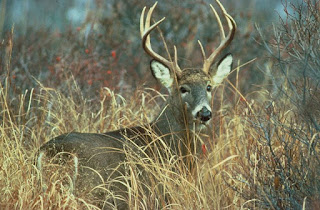 |
| New England Fall Leaves. Editor in Law, 2010. |
Of course, it helps that I live in New England, where the slanted light of autumn pours over leaves that are themselves turned gold. There are mornings and afternoons on my commute when it’s all I can do to watch the road. In hurried glances, I gulp down visions: pale fields of bleaching corn, mist that blankets meadows, and the way the sun burnishes all the leaves and the limbs of trees that hurry past my car.
That beauty stirs my gratitude, but it stirs other things as well.
When the blue of the hills grows soft, and the shadows in the woods are long; when crows make calligraphy against the sky, I can feel the Samhain’s tide rising within me, and as it rises, it glows.
I’m not one of those Pagans who can recite for you the names of all the chakras. I don’t know their colors or their Sanskrit symbols. I’m not even sure I’ve sensed them all.
But at Samhain time, I can feel warmth like an ember, low down in my belly.
The sun evokes it. The silence evokes it. The smell of fallen leaves evokes it: quiet fire in the curve of my pelvis, deep in that second chakra. It’s not a thing I imagine, or a thing will to feel. I simply feel it, a warmth and heaviness that centers in my womb.
 |
| Swadhisthana chakra. Mirzolot2, 2010. |
over twenty-five years, I have been a devotee of the Horned God, of Herne, he who hunts and is the deer. And I live in New England. And in New England, Samhain is the season of the deer.
I’ve always found it puzzling how many Wiccans hold up Beltaine as the season of sexuality. May? Early May? Really? At best, ’round here, a warm day in May–assuming you can find one–will be a matter of blackflies and hungry ticks.
And for the white-tailed deer, the deer of New England, May and June are the months for giving birth. There’s not much that’s less sexy than giving birth.
May is buggy. May is soggy. May, and Maying, and May Day? Are not for the deer. And they’re not for me.
But October? Samhain? Samhain shines, warm as a fireside.
 |
| Adult White Tailed Deer. 2015. |
Hunting season is coming. The months of scarcity and torpor are coming. Samhain is it: life’s last great celebration before the cold and the dark set in. Samhain is, as a good Freudian would put it, all about sex and death: sex, the organism’s answer to mortality.
I worship the god of the hunt, the horned one who dies and is reborn, he who takes life to feed the people, and also is the life that’s taken. His story is a Samhain story: generosity and ruthlessness, and humility and strength, and lust. Life, right in the face of death.
Of course Samhain is the fertility sabbat to me. How could it be anything else?
The light is low on the horizon as I commute to work and back again. The colors of October are sunset colors, from a sun that lies low on the horizon all day long, and all around me, the world is on fire.
Blood red leaves fall on bare black ground. Sex and death, death and sex. The season of the deer, the season of life.

Comments